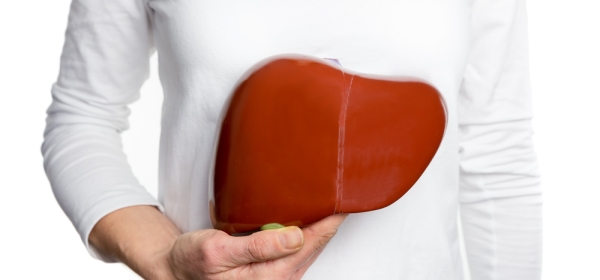Your liver is the largest internal organ in your body, and is about the size of a rugby ball, weighing in at around 1.25–1.5kg. And it’s an organ without which cannot live.
To truly love and appreciate your liver, an understanding of its crucial functions is paramount. So what does your liver do? Well, it:
- clears the blood of waste products, hormones, drugs and other toxins
- breaks down hormones and old blood cells
- makes, stores and releases sugars and fats
- produces essential proteins, including blood clotting factors and enzymes
- aids digestion by releasing bile salts to break down food
- stores and supplies vitamins, minerals and iron to parts of the body where they are needed.
Now that you know how important your liver is for your vitality, here are five useful tips for giving your liver some love.
1. Maintain a healthy weight
If you are carrying excess weight around your middle, it can result in insulin resistance, which often leads to fatty liver disease, putting you at high risk of liver scarring (cirrhosis), liver failure and liver cancer.
Exercising and eating a diet that’s low in fat, and high in fibre, vitamins, antioxidants and minerals will help you maintain a healthy weight and liver.
2. Avoid fad diets
Yoyo dieting can put excessive stress on your liver. Avoid any products or diets that promise large amounts of weight loss in an unrealistically short period of time. Liver cleansing and detox diets should also be avoided. Instead, eat healthily in general and aim to lose weight at a safe rate of 0.5–1kg per week.
3. Drink alcohol in moderation
As you may well know, the amount of alcohol you consume can affect your health, especially the function of your liver. It takes as little as 20 grams of alcohol daily (only two standard drinks) for women to develop liver problems. If you can’t cut back, talk to your doctor about getting professional help.
4. Have regular blood tests
Having regular blood tests will help you keep tabs on your blood levels of fat, cholesterol and glucose – all of which are associated with fatty liver disease. Also, if you’ve ever experimented with intravenous drugs, or had a blood transfusion or organ transplant prior to 1992, speak to your doctor to see whether you need to get tested for hepatitis C.
5. Check with your doctor
It’s best not to mix medicines without first checking with your doctor or pharmacist. This applies to herbal supplements as well as prescription and over-the-counter medicines. This is because some medicines make the liver work extra hard in order to break them down – and taking too many medicines at the same time can tax and damage the liver. So always seek professional advice first.
For more useful tips to look after your liver, visit loveyourliver.com.au
Related articles:
Can coffee can prevent liver disease?
How much alcohol is too much?
Do antibiotics and alcohol mix?

